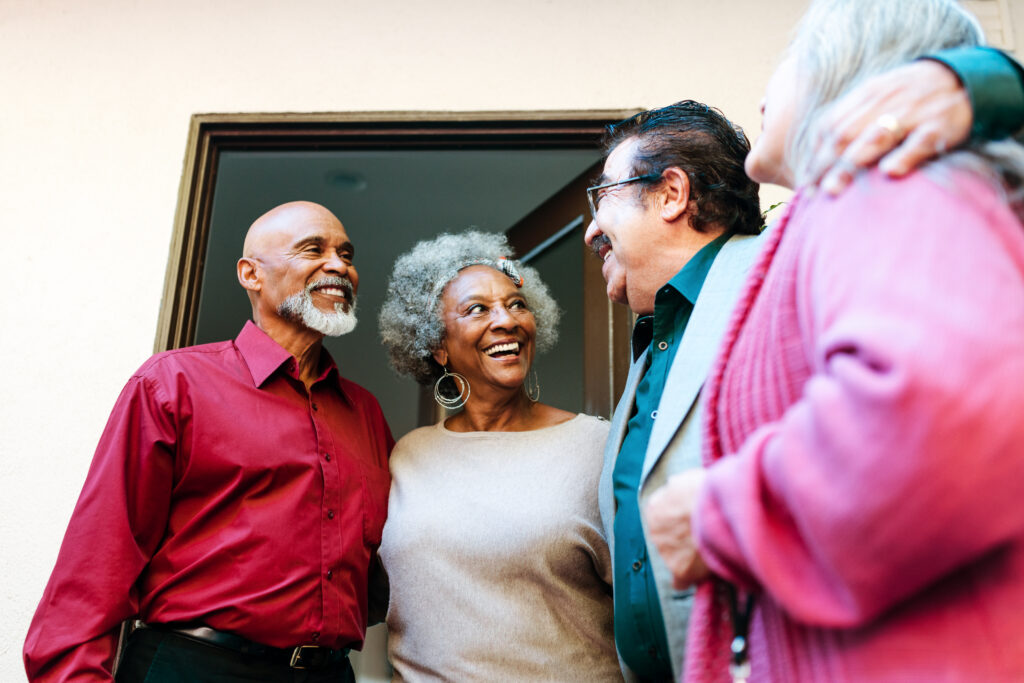Wise love from the vantage point of age

From the vantage-point of age, in the fifth, sixth and seventh decade of life, our view of love differs from how we felt as teenagers, as young brides, as young mothers. This is the point in life at which we may find ourselves grasping for a more refined vocabulary. Statistically, men die younger than women, and so a woman of a certain age, including retirees and grandmothers, may decide to date again. Falling in love in later life is a treasure, a pleasure, and a paradox. Some aspects are challenging. Many aspects are surprising.
And yet, when we speak of love, we’re sometimes at a loss for words. That’s it: “love.” But what kind of love are we talking about? Maybe it’s the inadequacy of the sole English term that contributes to our society’s obsession with romance. To call it by its Greek name, Eros, is grand indeed, from blushing pursuit to breathless consummation and grateful afterglow. But the love of, with and for a romantic and sexual partner is but one part of the mosaic we call love.
For Black people, loving each other is a revolutionary act. Without rubbing salt in the wound, our historic families were ripped apart, torn open again and again, for generation after generation upon our arrival in a suffering place that seemed like hell on earth. Just hum the old refrain, Sometimes I feel like a motherless child, and feel that shiver of centuries up your spine.
Radical love is how we will heal ourselves, heal each other, heal our loved ones, and heal our Blackness from the inside-out. Black love at its most radical is the way we love our children today, without fear, without compromise, without apology. Instilling in every Black child the knowledge that she, he, they are deserving and free, that they have every right to be here, have every right to be themselves, exactly as they are, have every right to expect and command everything good.
We do not, incidentally, need to be biological parents to reinforce this loving knowledge upon a child. Many of us are thrilled to be Aunties. This knowledge begins with the daily assertion in a thousand ways that the child is loved radically and absolutely, exactly as they are, from head to toe. Black love, beginning when a beloved child quickens in the womb, is the source of Black excellence, Black joy, Black pride, and true Black power.


The passage of time changes the lighting in the rooms of our family relationships. As the sun moves across the sky, the shadows in the room change. In the same way, the way we see ourselves and others may begin to shift. Sometimes, things which seemed invisible in the brightness of high noon only come into sharp focus as the daylight dances away and the shadows grow long. Perhaps you’ve had the experience (we have) of sitting in your living room, the room you sit in every day, and as the afternoon stretches into early evening, BAM! there it is — that earring that you thought you lost last summer. Beneath the sofa, or under the edge of the coffee table. Glinting, gleaming, waiting for you to recognize and claim it as your own. There it is! Not lost at all, just hiding in plain sight.
In our stories, we’ll explore and report on love relationships of all kinds, including family bonds: grandparents, parents, siblings, children, grandchildren. And not least of all, friendship, intimate trust with someone who is not a blood relation. With the passage of time, having a bestie, a buddy, a companion may take on new urgency, since isolation is the enemy of love.
We find that talking and writing about love at this point in life is a lot like spotting that earring. Something precious that we thought was lost has actually been there all along. Call it an epiphany, that showing-forth of gifts that the Magi presented to the Christ Child. Knowing love in all of its forms, and truly understanding love, regardless of what it’s called, is for sure one of the sweetest rewards of having lived a long life, and lived it well.
Love this. 💕
Thank you Anita!